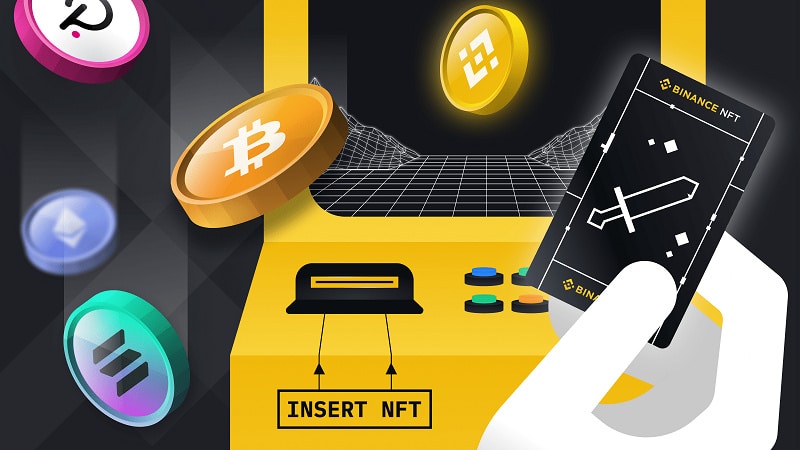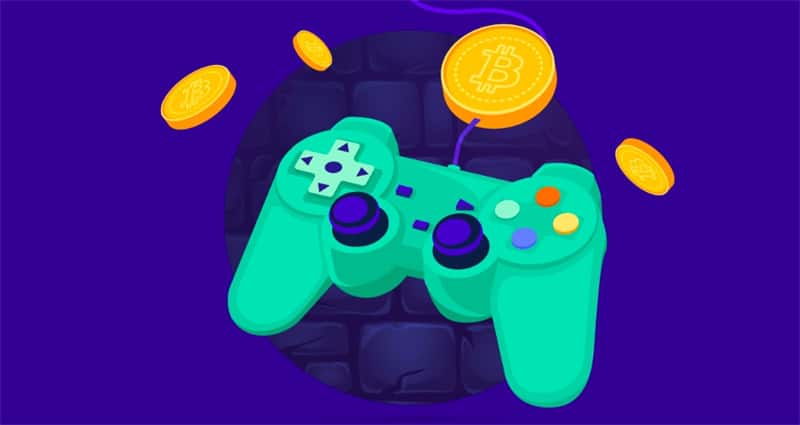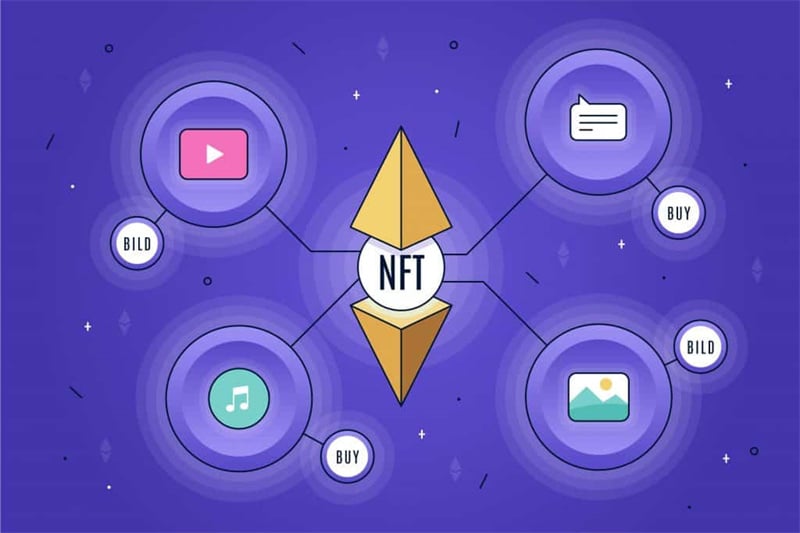
Wondering how NFT gaming is affecting gaming? Here are 9 ways NFT is changing the gaming industry.
The NFT gaming industry continues to change thanks to Web3. It has provided cutting-edge methods of playing games using cryptocurrency, non-fungible tokens (NFTs), and blockchains. During the first six months of 2022, 1.22 million active and unique wallets; referring to 52% of the entire blockchain activity—were drawn to Web3 games.
Understanding NFT Gaming

NFT and blockchains' potential to allow appropriate interoperability and ownership of games expands numerous opportunities for participants in the Web3 metaverse. Web 3.0 (AKA Web3) will change how the internet is used in a big way. Gaming is a major industry comprising most of Web3's features and apps.
So, this blog will talk about how NFT is changing the gaming industry. We will also talk about the problems that might arise if someone builds a similar app.
While we’re at it, check out the best NFT games for more insight on how NFT is affecting the gaming industry.
9 Ways NFT is Changing the Gaming Industry
Non-Fungible Tokens (NFT), on the other hand, could change the way players think about money even more. Join us to find out how NFT is changing the gaming industry.
1. Cryptocurrency Rewards
The majority of play-to-earn games give in-game bitcoin awards as well that can be utilized to produce passive income, guaranteeing that dedicated players are reimbursed financially for their involvement. The Play to Earn concept, sometimes known as NFT gaming, presents a user-driven economy built for active gamers to close the gap between the physical and virtual worlds.
Prizes for in-game income activities are basic and include weaponry tools. In addition, financial rewards such as assets and bitcoin may be tokenized and sold as NFT (Non-Fungible Tokens).
2. Open and Fresh Gaming Industry
NFT games reward users for participating with real money in cryptocurrencies or in-game by providing an open economy. With the popularity of NFT-based games, the value of the key NFT in-game characters and assets will increase, encouraging active participation in-game among gamers in exchange for increasingly attractive rewards.
3. Investments
NFTs can be considered investments. Individuals purchasing NFTs believe their value will increase over time, enabling substantial profit. The same can happen for NFT games as well.
For example, players enjoying small-scale local games can purchase the best in-game assets for a discounted price. The asset's value will increase if the game keeps becoming more popular. Then, the owner might decide to sell the asset and obtain a significant return on investment (ROI).
4. Independent NFT Games
NFT-based games can operate in many ecosystems because they are decentralized and built on different blockchains. Furthermore, because NFTs are represented separately from a specific game, the consumer won't run the danger of losing purchases when the game is closed.
NFTs in the gaming industry allow consumers to develop a unique identity that will be linked with their accounts throughout the ownership duration. Furthermore, consumers can safely keep their possessions due to the NFTs' employment of blockchain technology. As previously mentioned, users can exchange their digital assets for cryptocurrencies or fiat on NFT marketplaces.
5. In-game NFT Purchase and Sales
The main idea behind the play-to-earn model is to make, buy, and sell in-game NFT assets. Most people know about NFT-based games where players can buy and sell items. On online gaming marketplaces, they sell weapons they made, power-ups, and other assets from their collection of NFTs.
6. Pay to Win
One problem with micropayments is that you might have to pay to win. So far, every player in any game may obtain the best items. They might require luck to get what they want, but they are close to getting it.
But this might change now that NFTs are here. For example, suppose someone gets a full and unique item. In that case, they won't be interested in getting rid of it because it gives them a significant advantage over the other players.
7. Ownership of Virtual Gaming Assets
Players can manage their assets and add value by making things, buying assets, getting upgrades, and doing other things specific to the game. Adding to the game economy adds value to the developers and the community. Through NFT Games' future industry, players can get complete authority over these NFT game assets.
8. Loot Boxes
There are currently loot boxes, but NFTs could significantly modify them. If you were unaware, these are assets or boxes containing prizes. Hence, instead of directly purchasing an item or an asset, you buy boxes that contain random goods.
These objects are not NFTs because they are repeatable. With NFTs, new tokens might be created. In FIFA, envelopes featuring various players are available, but none are unique. With NFTs, players can have Christiano Ronaldo on their teams. Thus, players that are lucky enough to have these can be proud.
9. Sales Outside of Games
Since NFTs are powered by blockchain technology, they no longer need to be bought and traded through a central site. Moreover, companies also face another issue: players will have the ability to sell and purchase assets from the game outside the game.
Businesses might miss out on varying fees per transaction. Thus far, players are restricted or banned from trading outside the official app. Nevertheless, this might just become impossible to determine with NFTs.
Benefits of NFT Gaming

For various reasons, some believe that NFT gaming refers to the gaming industry's future. NFT games also provide advantages not available in regular games. They include:
In Game Ownership of Assets
In most games, once a player buys an asset, they can't trade it with another player. However, the stories in NFT games are unique. Gamers can trade with others or sell the NFTs on sites that support it.
Method of Income
Many developing and poor countries have high unemployment rates because their economies are weak. NFT games give people in those areas a way to earn by doing what they like best: playing games.
Demonstrated Scarcity
Most of the time, an NFT's value is based on how rare it is. Blockchain technology helps keep things open and honest. This makes it easy to determine who owns the NFT and how many there are.
Safety
Since NFTs are blockchain-based, they are unique and hard to copy. This ensures that difficult-to-obtain NFTs are not stolen or copied. Unless fraud is involved or a member grants malicious smart contract access to their wallet, it is impossible to lose an NFT.
Conclusion
Now that we discussed the 9 ways NFT is changing the gaming industry, you can understand the entire mechanism easily. Also, you can make better and more informed decisions while gaming on such platforms. This will also help safeguard your best interests regarding NFT gaming.










